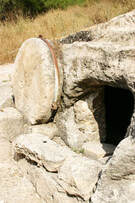 Our friend, Tas Walker, answers some fair questions about Easter here. On the origin of the English word Easter, he says: it came from the Germanic Ost, for east, and rising. "it’s most doubtful that any Eostre was ever worshipped, because the only evidence is from Bede. And he never mentioned any animal associated with her. A non-existent association with a non-existent goddess is hardly good grounds for seeing paganism in the Easter bunny!" On the question of three days and nights, he says: the term "third day" was interchangeable with "3 days & nights" back in the culture of the day. "So while X days and X nights can mean what it means in English, this was only a subset of its semantic range in Jewish idiom... "Note that even His enemies understood that ‘after three days’ meant that they only had to secure the tomb ‘until the third day’. If three full 24-hour periods were meant, then they would want to secure the tomb until the fourth day to make sure. So for Jews, the phrases ‘on the third day’, ‘after the third day’, ‘until the third day’ and ‘three days and three nights’ were synonymous." Enjoy the details. Biblical Feasts summary Feasts are more than just great times. They bind communities together around shared concepts and experiences in common. Like a wedding feast celebrates around our common support of the union of these people. Likewise the feasts that God instructs his people to observe, bind them together too, around concepts core to their identity. And because these core concepts are fulfilled in Jesus, they are also about our identity too. Due to our communion services, many of us already know how Passover relates to our life in Christ (the prophesied Messiah). Likewise, so do the other Feasts of the LORD, instituted in Lev23:1-44. Num29:12-34. Deut14-16.
1) Christ is the spotless Passover lamb, whose blood saved us from death, and from slavery to sin. 2) Christ is the Unleavened Bread, broken, wrapped, and buried to return later. 3) Christ is the First Fruits of the resurrection. 4) Christ's Spirit is given at Pentecost /Feast of Weeks /Second Harvest, to gather Gentile believers as a second harvest. 5) Christ's return announced with Trumpets, will begin the new age to come. 6) Christ our Atonement will cover us when he Judges this mixed up world. 7) Christ Tabernacles with us now by his Spirit, but will dwell with us in the Heavenly feasting to come. Although Christians don't have to observe these feasts, we can celebrate that Israel's core Scriptural feasts are fulfilled by the Messiah who grafts us in to His Story. Thus these feasts can bind us together deeply. New Life Church in Fremantle made these cards about Christ in the Calendar of feasts. I added the 8th. Christians benefit from a closer look at the Biblical Fall Feasts, because, among other things, they foreshadow Christ's work in days to come. We have hindsight to help us see how Christ fulfilled Passover, Unleavened Bread, First Fruits, and Pentecost. We need foresight to see how he will fulfil Trumpets, Atonement, and Shelters.
This helps us understand why there are two New Years in the Jewish calendar: the religious-year cycle of teaching starts with Trumpets, but the calendar-year starts just before Passover. Some people start their spiritual lives at the beginning with Creation and the Old Testament (Jewish), but some start with Jesus the Passover lamb (Christians).
The religious annual cycle begins with Creation, the First era:
Whether you start with Creation, or start with Christ, the Feasts commemorate the whole of history, from the very beginning to the very end of the age. |
Categories
All
Archives
July 2024
|
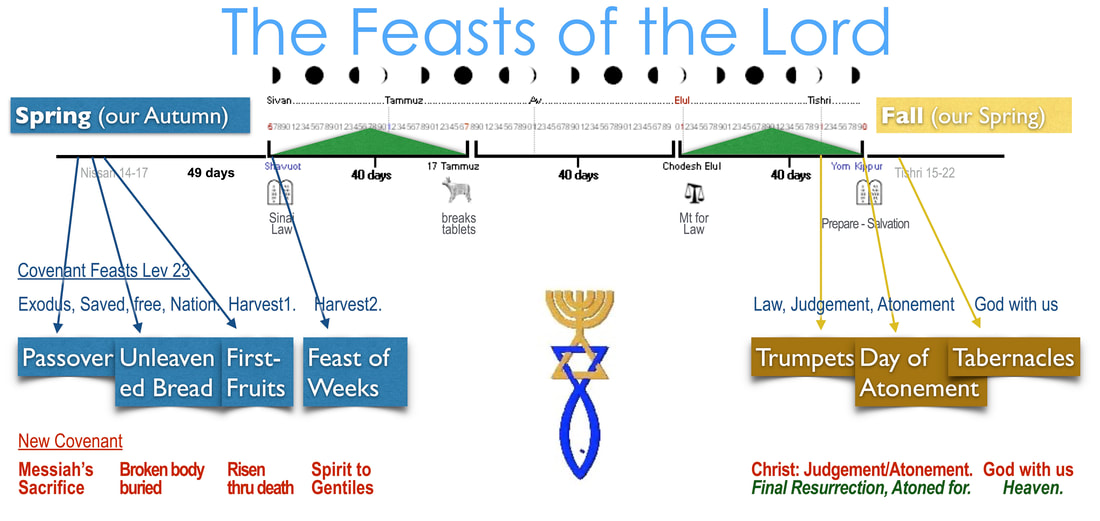
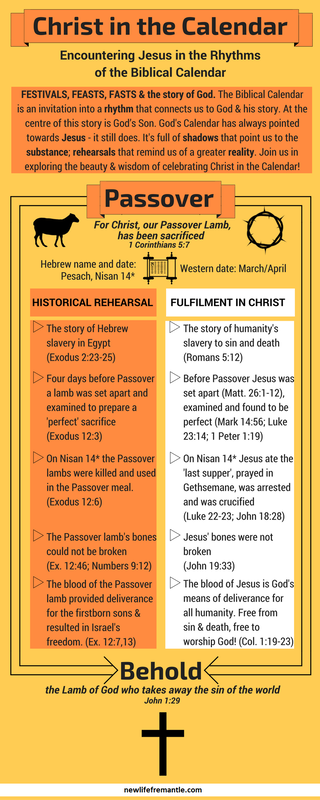

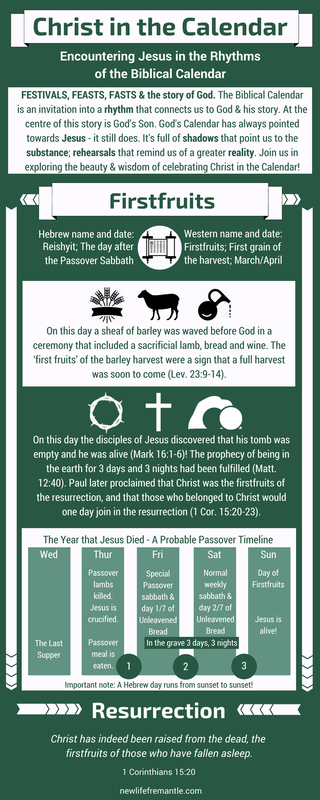
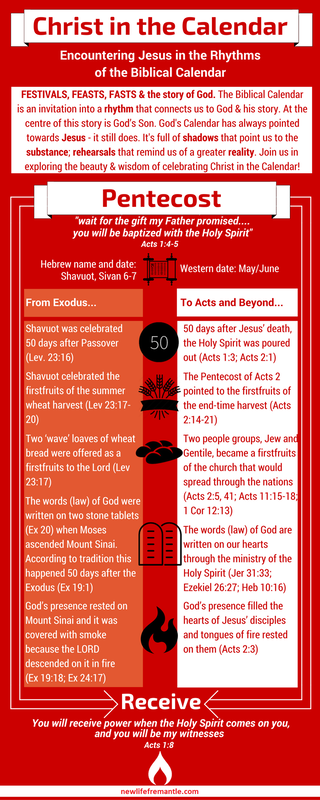
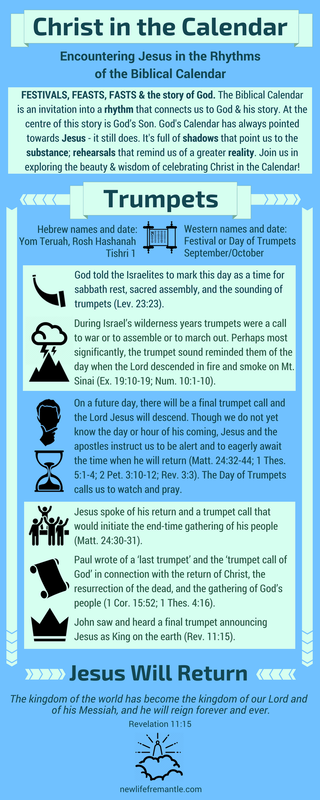
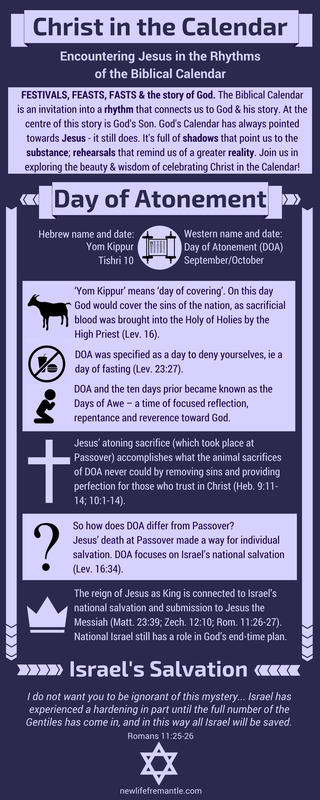
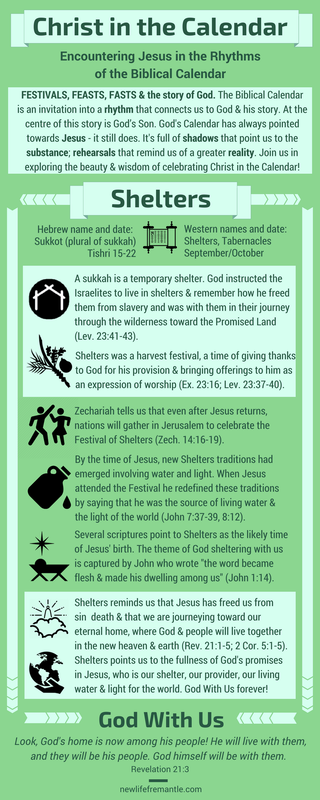

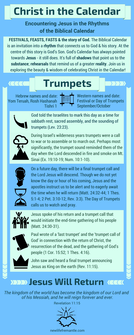
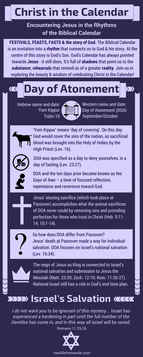
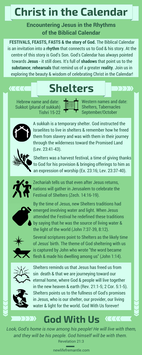
 RSS Feed
RSS Feed